Solidarity: Reason and Heart of the Economy
The 61st session of the Commission on the Status of Women (CSW), organized by the United Nations (UN), brings to the debate an important topic given the many challenges that Humanity is facing: “Women’s Economic Empowerment in the Changing World of Work.” I would first like to greet all the international delegations, authorities, and participants who are discussing this essential topic in New York/USA and wish them a fruitful event.
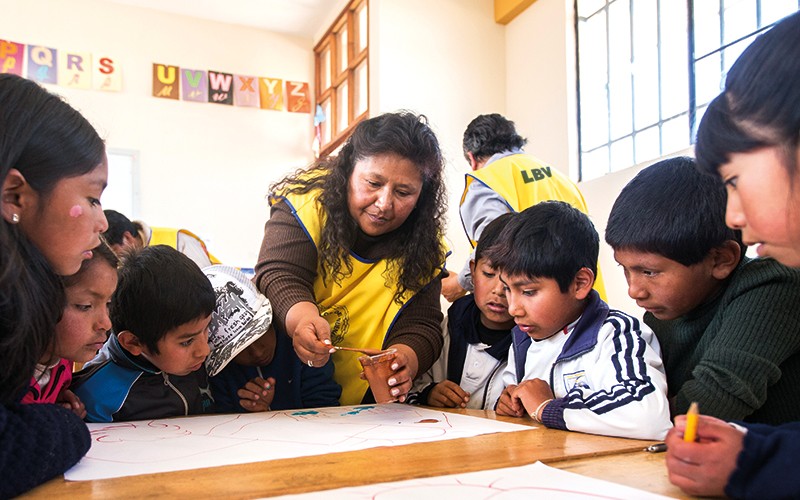
Educator Jenny Mancilla (C) during an activity of the Education in Action campaign promoted by the LGW of Bolivia in the Unidad Escolar Luz de Belén, in the city of El Alto, district of La Paz.
My special compliments to the newly elected UN Secretary-General, António Guterres. We, from the Legion of Good Will (LGW)—an Organization that became a member of the Department of Public Information (DPI) in 1994 and has had general consultative status at the Economic and Social Council (ECOSOC) since 1999—congratulate him on the acclamation received. We take this opportunity to also wish him much success at the head of the United Nations, particularly in these decisive times of multiple global demands.
The LGW is deeply honored to have been contributing for more than two decades to this international meeting. For us, women are the true bedrock of civilizations, when they are truly integrated with God and/or with the most sublime ideals that ennoble the human race. In other words, even if they do not believe in the existence of the Heavenly Mother-Father, women protect and nourish nations when they transform themselves into the battering ram of the noblest sentiments that are born of their heart, such as Charity, Solidarity, Fraternity, and Generosity. They must be protagonists in the construction of an economic model in which the highest values of the Soul are the ballast of human interaction.
If we are dealing here with the urgency of providing women with economic empowerment, it is because we must abolish, once and for all, the discrimination against them in terms of the access to the same development opportunities that men receive in the world of work. We can no longer accept the impediments that women encounter in this filed, leading to a delay in the fight for gender equality and the eradication of poverty. How can we imagine drawing up effective public policies while half of the world’s population is relegated to an inferior economic level? This goes against logic!
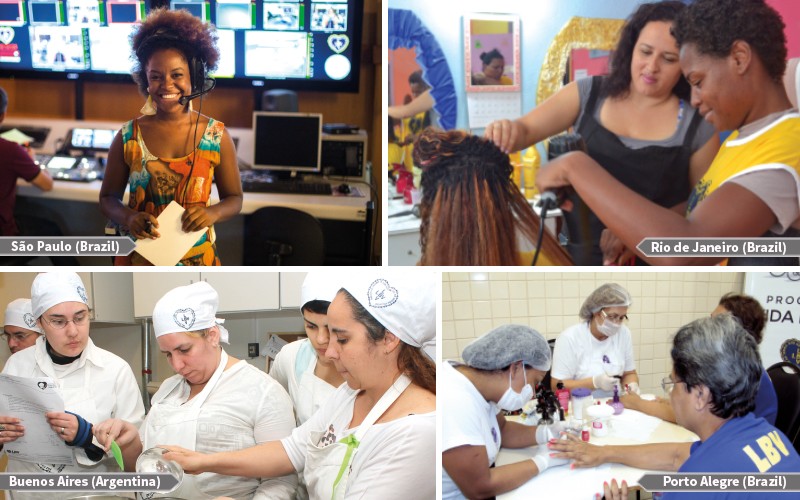
Several courses and activities carried out by the LGW are directed at generating income, aiming women economic empowerment. In 2016, around 60 percent of the services and benefits offered by the Organization were in favor of women living in a situation of social vulnerability.
The miracle of housewives
The wisdom of women cannot be ignored, especially when it comes to managing planetary goods. In this sense, I would like to remind you of what I said decades ago: no man achieves anything that is truly valuable for promoting Peace unless he has, one way or another, the support of a woman, above all in the field of Economics, which cannot be caught committing the serious crime of forgetting the spirit of Solidarity. There is no better financier than the mother of a family, a housewife, who has to make do with her often tiny budget and perform true miracles, of which we, from the most influential minister of finance to the simplest citizen, are all witnesses. It is a well-known fact that in order to apply this science or art—in which the distribution of resources and sources of income does not exclude any daughter or son of this great home of ours called Earth—the action of women is fundamental.
Exalting the cordial face of the economy
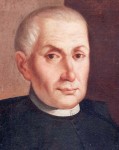
Manuel Bernardes
An economic path on which everyone wins is not a fanciful thought. When individuals loyally make an effort, a good agreement can always be reached. Very much to the point, we have this illustrative aphorism from Portuguese priest Manuel Bernardes (1644-1710), author of Pão partido em pequeninos:
“Even a little can be enough for many when you have good regulations; without them, not even little reaches many. All private excess causes common penury. If one of the two people in the same bed pulls the cover for himself, the other will obviously be uncovered.”
In no way am I suggesting that the crumbs falling from bountiful tables be the basis of the existence of those who live in poverty. I am not talking about leftovers, but of the honest conscience that cannot eternally admit that their well-being continues being established at the cost of the hunger of the disinherited. This is pure Gospel of Jesus. This is the essence of the message of the Sacred Books and of the Golden Rule of a wide variety of cultures. This is the voice of so many notable people, whether religious or atheists, who cannot conceive that, in the third millennium, there are still populations that are subject to poverty on a planet that was built by the Goodness of God.
There is something wrong with the current economy: alongside its rational side, its cordial side (in other words, the intelligence of the heart), has to be placed. We hope that at a time not too far in the future, the capitalist leaders, who have always distinguished themselves because of their “pragmatic” spirits, will realize that globalization will knock down all kinds of barriers that served as a buffer between them.
Challenging the individualistic taboo
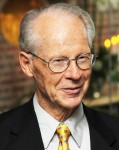
Oliver Williamson
Among the many cases that illustrate the need for this spirit of Solidarity in civilizations, it is worth mentioning the brilliant work of Dr. Elinor Ostrom (1933-2012), the only woman until today to receive the Nobel Prize in Economic Sciences. She and Oliver Williamson were honored in 2009, both for their research in economic governance.
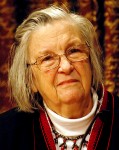
Elinor Ostrom
The late professor at Indiana University, USA, had to overcome academic prejudice against women to graduate in Political Science. She was of humble origin and became interested in studying the organization of communities to manage common resources, such as forest and fishing areas. She believed that people on their own would be able to achieve rational ways of surviving and getting along well, and that it would be possible to establish bonds of trust among individuals and develop rules according to the particularities of ecological systems, so that there would be collective care and benefit of the available goods. This went against the prevailing economic theory, called “the tragedy of the commons,” based on a view that human beings acting only according to their own self-interest would ruin the natural resources.
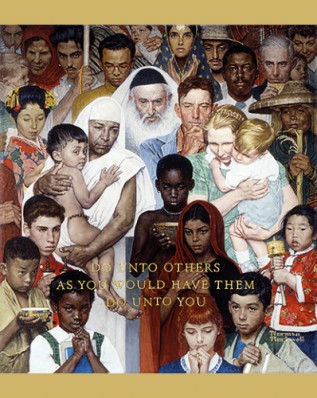
Golden Rule (1961), Norman Rockwell (1894-1978), United Nations Headquarters, New York, USA.
The extensive field research she carried out in the forests of Nepal, in irrigation systems in Spain, in mountain villages in Switzerland and Japan, or in fishing areas in Indonesia, among other places, showed that it is possible to live harmoniously and use responsibly the conditions that Nature offers. It was found that people could not be reduced to greed and to simply seek maximum individual gains. However, it has to be understood that life is composed of broader goals, of which mutual aid is the basic necessity of the human Soul. In a scientific article of June 2010*, Dr. Ostrom concluded:
“Designing institutions to force (or nudge) entirely self-interested individuals to achieve better outcomes has been the major goal posited by policy analysts for governments to accomplish for much of the past half century. Extensive empirical research leads me to argue that instead, a core goal of public policy should be to facilitate the development of institutions that bring out the best in humans. We need to ask how diverse polycentric institutions help or hinder the innovativeness, learning, adapting, trustworthiness, levels of cooperation of participants, and the achievement of more effective, equitable, and sustainable outcomes at multiple scales.” [Emphasis added]
Nothing is better than believing and investing in the divine potential of human beings. When reason is united with the heart (sentiment)**, fraternal solutions provide life with the longed-for happiness, which can only be true when there is both material and spiritual food on everyone’s plates. We never get tired of stating: we were born on Earth to live in society, a Solidary, Altruistic, and Ecumenical Society; therefore, one that is sustainable.
The soul is the generator of all progress
This is why I wrote in the Folha de S.Paulo newspaper on September 7, 1986, Brazil’s national day, in my article “Independência” [Independence]: The human being, with his/her Eternal Spirit, is the center of the Economy, the generator of all progress. Without him/her, there is neither work nor capital. We need to finally move further ahead and say that the Eternal Spirit that lives in our human body really is the measure of everything, because it is a Heavenly Citizen.
The wealth of a country lies in the hearts of its people. Nevertheless, entire nations still suffer misery. It should be remembered that empty stomachs and frustrated Spirits are generally unwilling to listen.
The laws of divine economics
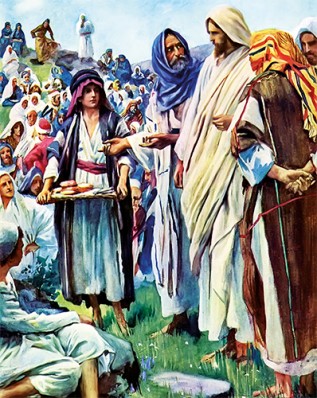
Jesus and the multiplication of the loaves and fish, in His Gospel according to John 6:5 to 15.
Given this comprehensive understanding of human beings and their role in the world, we argue in favor of the Economics of Spiritual and Human Solidarity, a proposal I launched decades ago. It goes beyond the economics that individuals discuss so much about and of which they affirm one thing today and despise it tomorrow, leading generations to despair. We advocate that Solidarity has expanded from the luminous field of Ethics and has become a Strategy for Survival, which is above the laws and economic models hitherto discovered and often employed by us humans in an undignified way. We discuss concepts that pre-exist the creation of the world, which have to do with the Laws of Divine Economics, which treat genders equally, because they are destined for the immortal essence of the daughters and sons of the universes.
Free of any sectarianism, we can learn a lot from the countless teachings of Jesus, who to this day moves even the most stonehearted person with His social concern in caring for the needs, of the body and Soul, of His fellow beings. We saw this when He fed from just fie loaves and two fishes the huge crowd that accompanied Him (The Gospel according to John 6:5 to 15). The Ecumenical Christ, the Sublime Statesman, left us the secret of this spiritual and humanitarian stance:
“Seek fist the Kingdom of God and His Righteousness and all the material things will be added to you.” Jesus (Matthew 6:33)

Alziro Zarur
When we set out to meditate on this Economic Formula of Christ, we will become one with the Competence of God, as we are His creatures. Everything that is related to production and income distribution is in this “Extremely Urgent Formula,” as the late founder of the LGW, Alziro Zarur (1914-1979), called the aforementioned biblical verse. The result of the application of this wisdom, “of the Kingdom of God and His Righteousness”—in other words, of the full knowledge of the Spiritual Laws that govern life in the Cosmos which is capable of making Humanity more humane and more spiritual—is the opening of our minds so that this Divine Competence establishes itself in us. Thus, we will not be shackled by the restrictive view of the scarcity of resources, goods, employment opportunities, and whatever else. On the contrary, we will allow the unlimited values of the Spirit, such as Love, Solidarity, Generosity, Altruism, and Fraternity to establish the hallmarks of solutions for all the social and economic problems that afflict people, which will come through the joint effort of individuals who are enlightened by this Infinite Knowledge.
In my book Como Vencer o Sofrimento [How to Overcome Suffring] (1990) I pondered: The Love one shares multiplies in he who shares it. This is the Ecumenical Economy, thus Solidary and Altruistic, a formula according to which the more one gives the more one receives. This is the perpetual motion propelling life in community.
Prayer, work, and Peace
Ever since he was very young, whenever my youngest son, today a teenager, utters a brief prayer at the table before meals with our family and friends, he moves everyone with a simple mantra that sums up the great compendiums of wisdom, one that shares Solidarity without borders of any kind. The young boy exclaims:
“God, I ask You, let there be no lack of food on anyone’s plate, including ours!”
On the occasion of the 61st Commission on the Status of Women, I consider it very worthwhile to call on a Higher Power in a similar prayer: Let there be no lack of decent means of earning a living for any woman or girl, dedicated worker, or member of our family! Amen!
Let us make this plea together, but in the active hope that this “so be it” will find the right measures that meet the urgent needs of populations in the plans of the world’s governments.
Human beings who are gainfully employed and duly valued in their efforts are the guarantee of Peace and sustainable progress for all.
UN Secretary-General thanks Paiva Netto for his warm greetings
The editors
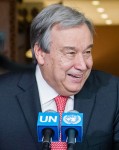
António Guterres
On November 14, 2016, the President of the Legion of Good Will, José de Paiva Netto, received an official letter from the team of António Guterres, the new Secretary-General of the United Nations, which expressed Mr. Guterres’ gratitude to the LGW’s president for the letter sent to the Portuguese diplomat with his compliments on being appointed to hold the top position in the UN.
The following message was signed by Kyung-wha Kang, UN’s Secretary-General’s Special Advisor on Policy:
“Esteemed President,
“On behalf of the Secretary-General designate, António Guterres, allow me to acknowledge your kind words of congratulations. It is with great honor and with a sense of responsibility that he will assume his new duties.
“The Legion of Good Will is a civil society organization that has had a long-standing partnership with the United Nations. Its mission to encourage the practice of values in order to create a fairer and more solidary society is more globally relevant than ever. Its initiatives are aimed at improving the situation of low-income people in various areas, such as education and social and economic development, making a major contribution to achieving the Sustainable Development Goals and their target of eradicating poverty by the year 2030.
“We count on the Legion of Good Will to work with the United Nations in search of solutions to the most urgent global challenges of today.”
It is worth mentioning that long-established ties unite these two traditional Organizations, which have worked to promote harmony between people and between nations as well as sustainable development since their origins back in the 1940s.
_____________________________________
* Ostrom, Elinor, “Beyond Markets and States: Polycentric Governance of Complex Economic Systems,” American Economic Review, 100 (June 2010): 24, http://www.aeaweb.org/articles.php?doi=10.1257/aer.100.3.641
Paiva Netto’s Note
** Unite the brain with the heart — I would like to explain to you that the use of the terms “brain” and “heart” in my writings comes from the need to provide evidence of a symbolism that is essential to the clarity of that which I present to you, in such a way that two of the most important conditions of the Soul are clearly expressed: thinking and feeling, or, in a more perfect moral order, feeling and thinking. I could say that as the mind is the main contact point of the Spirit with the body, the center of thinking and feeling (loving) are found in it. Therefore, by using such analogy, I seek to communicate with you in a simpler way.
The comments do not represent the views of this site and are the sole responsibility of their authors. It denied the inclusion of inappropriate materials that violate the moral, good customs, and/or the rights of others. Learn more at Frequently asked questions.